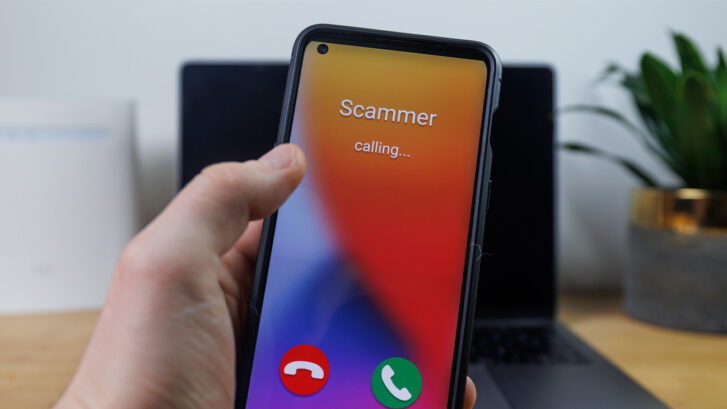IRS scam calls are fraudulent phone calls made by scammers pretending to be representatives of the Internal Revenue Service (IRS), the United States government agency responsible for tax collection and tax law enforcement. These scam calls are a type of phishing attack aimed at stealing personal information, money, or both. The scammers often use fear tactics, threatening individuals with arrest, deportation, or other legal action if they do not immediately comply with their demands, which typically involve payment of supposed taxes owed.
Here are some common characteristics of IRS scam calls:
- Threatening Language: Scammers often use aggressive, threatening language to create a sense of urgency and fear. They may claim that the recipient is facing immediate arrest, legal action, or other severe penalties if they do not comply.
- Demands for Immediate Payment: The caller usually demands immediate payment of taxes they claim the recipient owes. They often insist on specific payment methods that are difficult to trace or recover, such as prepaid debit cards, gift cards, wire transfers, or cryptocurrencies.
- Request for Personal Information: Scammers may ask for personal or financial information, such as Social Security numbers, bank account details, or credit card numbers, purportedly to verify identity or to facilitate the payment of taxes owed.
- Caller ID Spoofing: Scammers often use technology to fake caller ID information, making it appear as if the call is coming from the IRS or another official source. This technique is known as caller ID spoofing.
- Refusal to Allow Questions or Appeals: Scammers typically do not allow the recipient to ask questions or appeal the amount they claim is owed. They may insist that the matter is urgent and must be resolved immediately.
It’s important to know that the IRS does not:
- Call taxpayers demanding immediate payment using a specific payment method.
- Threaten to immediately bring in local police or other law-enforcement groups to have the taxpayer arrested for not paying.
- Demand taxes be paid without giving the taxpayer the opportunity to question or appeal the amount owed.
- Ask for credit or debit card numbers over the phone.
If you receive a call from someone claiming to be from the IRS and asking for money, you should not give out any personal information and hang up immediately. You can report the call to the Treasury Inspector General for Tax Administration (TIGTA) and the Federal Trade Commission (FTC) to help protect yourself and others from these types of scams.
Phone numbers used in IRS Scam Calls:
The specific phone numbers used in IRS scam calls can vary widely and change frequently, as scammers typically use disposable, temporary, or spoofed numbers to avoid detection and prosecution. They often employ technology to make their caller ID appear as if the call is coming from the IRS or another legitimate source, even mimicking legitimate IRS phone numbers to deceive victims.
Beware of call spoofing:
Because of the use of caller ID spoofing, virtually any number can be used in these scams, making it difficult to identify scam calls based on the number alone. However, there are some common traits in the tactics used by scammers, including the use of numbers that appear to be from within the United States, sometimes even using area codes and prefixes that mimic those of government agencies.
The IRS has repeatedly warned that these scam calls can use many different numbers, and focusing on specific numbers isn’t an effective way to identify or prevent scams. Instead, it’s more important to be aware of the behavior and tactics used by scammers, such as asking for payment in specific ways (like gift cards or wire transfers), and asking for personal or financial information over the phone.
Find out who is calling you
What to do if you receive an IRS Scam Call:
If you receive an unexpected call from someone claiming to be from the IRS and suspect it might be a scam, the best course of action is to hang up without providing any information. You can then contact the IRS directly using the phone numbers listed on their official website to inquire about any issues with your taxes. This approach ensures that you are communicating with the actual IRS and not a scammer.





